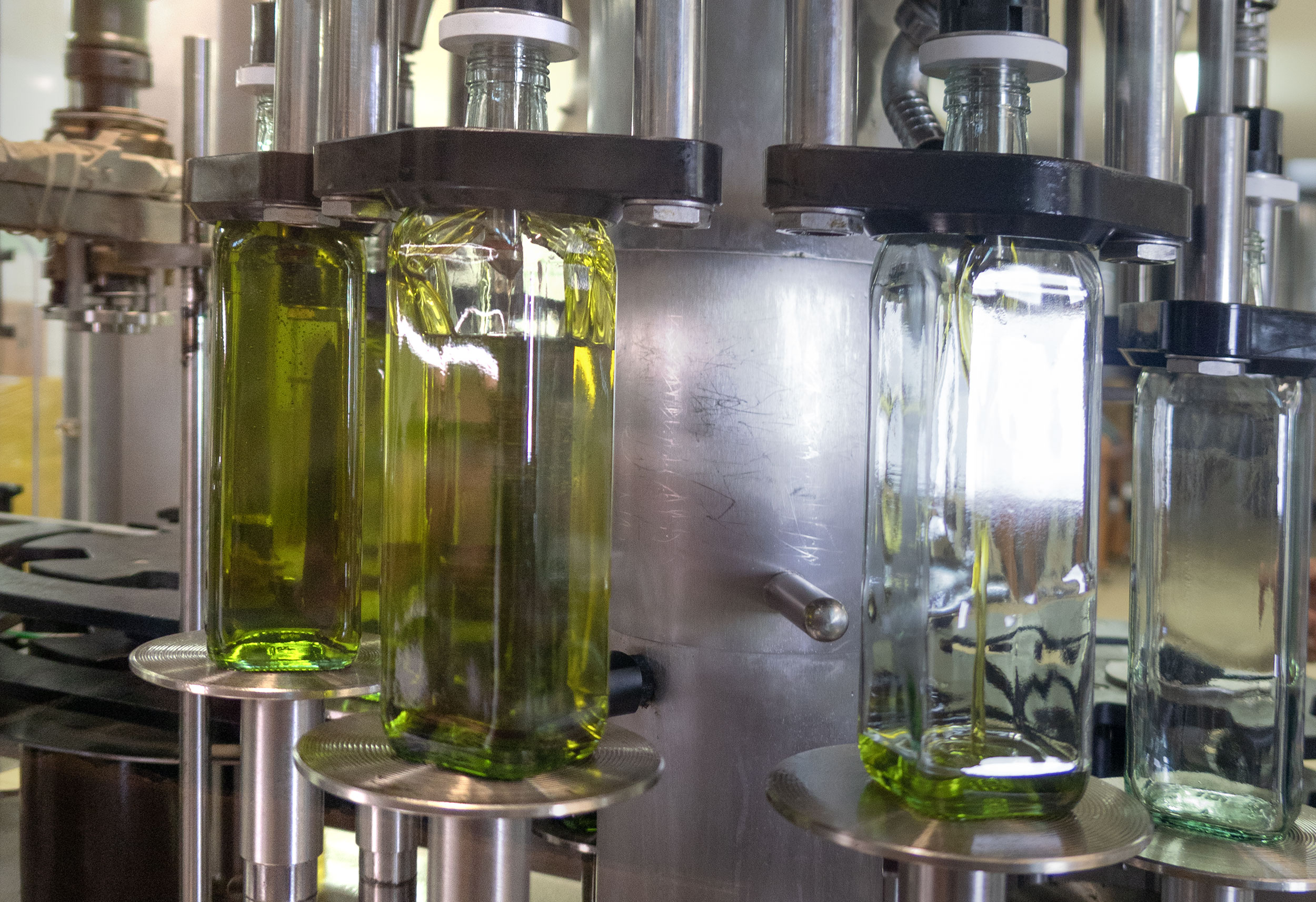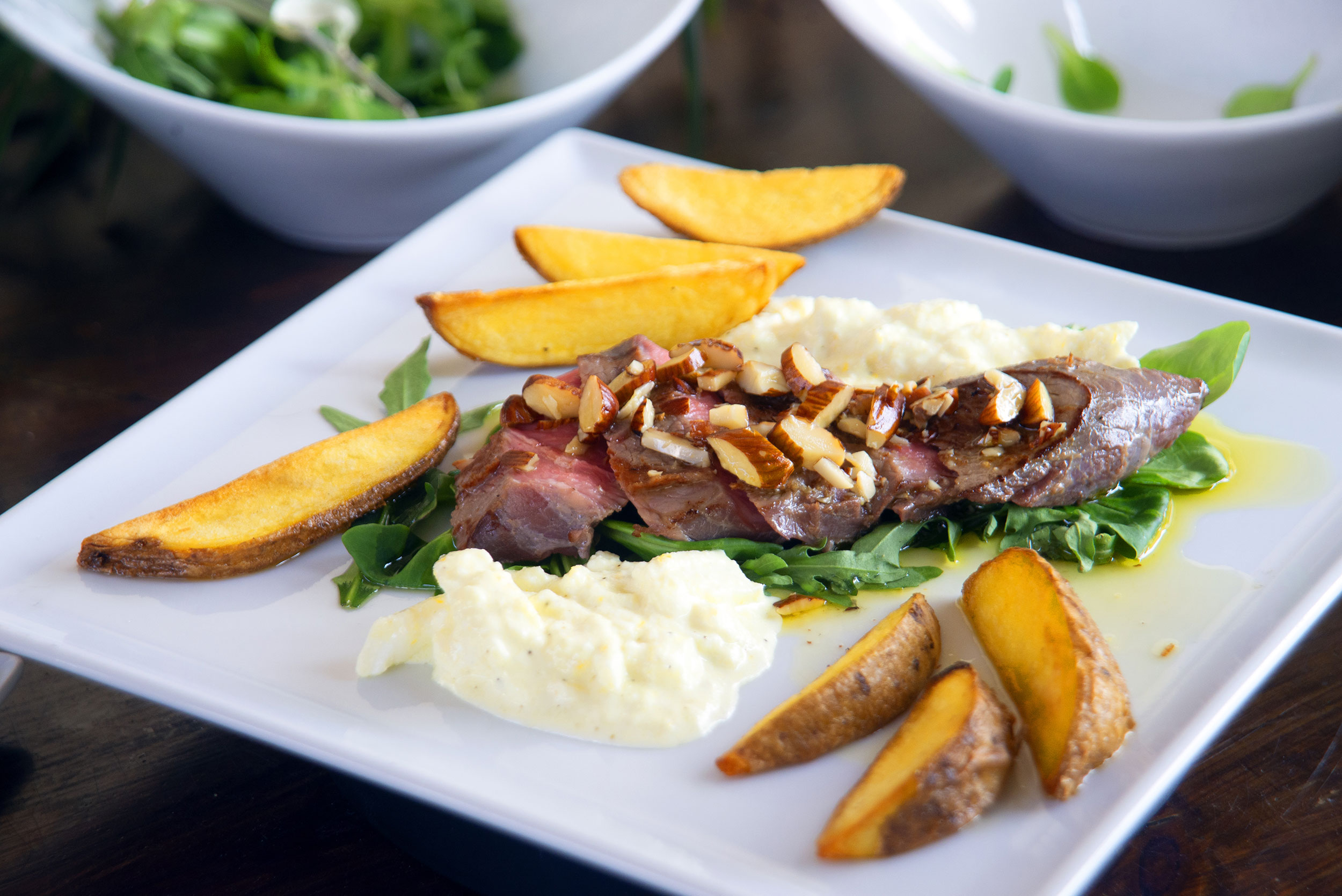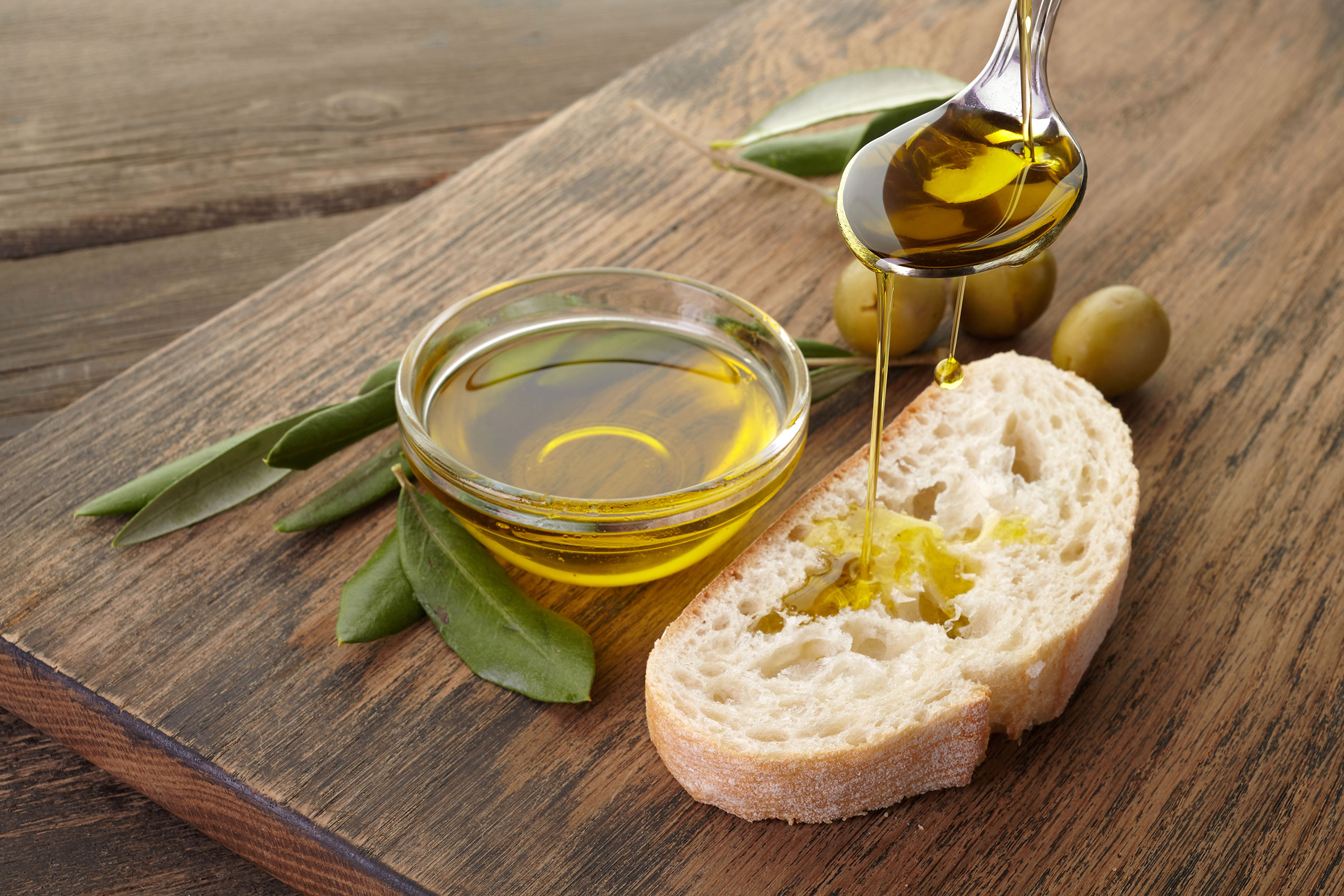Nutritional and health benefits
The nutritional properties of European Extra Virgin Olive Oil almost totally reflect those of the olives from which it comes. Processing methods and techniques can minimally influence energy intake and nutrient content which therefore vary between different types of cultivars. European Extra Virgin Olive Oil provides approximately 824 Kcal per 100 ml of product.

Food values
The nutritional category to which European extra virgin olive oil belongs is that of lipids, which also includes waxes, cholesterol and its derivatives, some vitamins, in particular A, D, E and K, some substances that we classify as aromas, for example the aroma of lemon or geranium.
The average nutritional values of extra virgin olive oil are very unbalanced towards oleic acid and this is an extremely positive fact, since it is a fatty acid that is very heat-stable, but difficult to transform into cholesterol by our body.
Saturated and polyunsaturated fatty acids are also present, but in much lower quantities. It should be noted that most of the fatty acids are present in the form of triglyceride, that is, three molecules of fatty acids linked to one of glycerol, and this is essential for conservation but above all to avoid having an acidic taste which would make the oil inedible.
Micronutrients are substances which, although in small quantities, play a very important role, especially from a nutritional point of view.
The presence of vitamin E is a characteristic that distinguishes olive oil from other seasoning oils and/or fats.

Oil in the cooking process
Vitamin E is an antioxidant, therefore a substance that protects us from free radicals and has a protective role from a well-being point of view.
It should be remembered that the reactions that generate potentially carcinogenic molecules during the cooking of food also occur through radical mechanisms, therefore olive oil should be used in cooking, and when done also in frying, because oleic acid resists temperatures well. , but the presence of vitamin E disfavors oxidation and therefore the production of free radicals.

Substances beneficial to health
European extra virgin olive oil is full of other surprises, substances present in small parts, but with highly beneficial effects for health.
Their names are phenols, polyphenols, secorroids, flavonoids and lignans. Names unknown to many, but which probably really make the difference in making this food unique.

The benefits are multiple:
Antioxidant effect:
They almost all act in a similar way to antioxidant vitamins (A, C and E), keeping free radicals at bay, but more than one of them carries out a genomic action, activating the synthesis of enzymes that permanently deactivate the radicals free themselves.

Anti-inflammatory effect:
The intake of oleuropein/ hydroxytyrosol for 7 days, contained on average in 4 -5 tablespoons of extra virgin olive oil, has a positive effect on IL6, a mediator of inflammation, in apparently healthy subjects
Neuroprotective effect:
In particular, oleocanthal, but also oleuropein, hinder the polymerization of the Tau protein and the accumulation of the protein fractions responsible for Alzheimer’s, just as there are studies that have shown equally positive actions on Parkinson’s disease and multiple sclerosis.

Regenerative and protective effect on the skin:
Just recently with a group in partnership with CREA and the University of Calabria, he underlined how hydroxytyrosol oleate has a positive effect on keratinocytes (the characteristic cells of the epithelium), also of skin regeneration, which could make extra virgin olive oil the basis also for products for topical use
Anti-tumor effect:
Certainly due to the anti-inflammatory and antioxidant action, which put our immune system in the best conditions to respond to a challenge such as fighting a tumor. There are more and more studies that confirm how some polyphenols could have a direct antiproliferative action on tumor cells.

Oil helps hydrate dry hair
Experts recommend applying it directly to the ends, or adding a few spoonfuls to the shampoo. External agents, such as humidity and smog, but also frequent dyeing and washing, tend to damage the hair, making it dry and brittle and although there are a multitude of repairing products on the market, an equally effective natural remedy is that of use extra virgin olive oil to give new life to your hair.
Making a reference to history, the women of ancient Egypt already knew its incredible benefits in body care: olive oil, especially extra virgin olive oil, is rich in vitamin A which prevents aging, of vitamin E which helps the circulation of the scalp and has an antioxidant action and, last but not least, it is rich in fatty acids which promote hydration. The oil, therefore, so rich in nutrients and with a perfect consistency, is an optimal natural conditioner, as well as having a detangling action on the hair, it nourishes it deeply, leaving it soft and shiny.

Cosmetic ally for health
European Extra Virgin Olive Oil is a great ally for health: it is no coincidence that, in history, it was born as a cosmetic product and only later as a food ingredient.
The organic world, according to research in recent years, uses oil more and more frequently, as well as in the cosmetics sector, thanks to its ability to provide nourishment and acidity to the skin. Furthermore, it can be used for compresses, baths, masks and after-bath emulsions, thanks to its toning and revitalizing abilities.


ABOUT THE PROGRAMME
EUOO program is a marketing and promotion program launched in USA under the responsibility of OP Associazione L'Olivicola Cosentina and co-sponsored by the European Union.
